Description
Genus: Tylopilus
Species: plumbeoviolaceus
Common Name: “Violet Gray Bolete”
Tells: Purplish stem is marbled or streaked w/white, & browns w/age. Cap is similar but browner, often w/a whitish bloom. Bitter, white cap flesh DNS.
Other Information: The stem may have a tiny bit of netting at the very top, and may bruise olive or olive-brown. Compare to T. violatinctus, which is more pink than purple, has a cap that bruises violet, and tends to be buggy (plumbeoviolaceus rarely has bugs). Also compart to T. rubrobrunneus, which has more brown. All are absolutely beautiful, meaty mushrooms. It’s a genuine shame they taste so awful.
Edibility: Too bitter to eat but useful for unique approaches like cocktail bitters or bittersweet candied products. It isn’t toxic; just absurdly bitter in a way that gets worse when you cook it.
CHEMICAL TESTS:
- NH4OH (Ammonia): Cap surface turns pale brownish amber. Cap flesh does not react. Stem skin turns pale yellow.
- KOH: Cap surface turns orange to dull amber. Cap flesh does not react. Stem skin turns dull yellow.
- FeSO4 (Iron Salts): Cap surface turns pale brownish amber. Cap flesh turns yellowish to pinkish. Stem skin does not react.
Links:
 |
594 |  |
296
341 |
 |
268 |  |
386 |

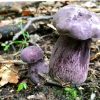
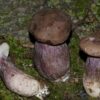
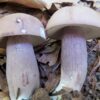
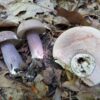
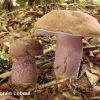
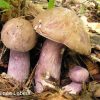
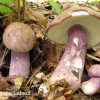
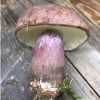
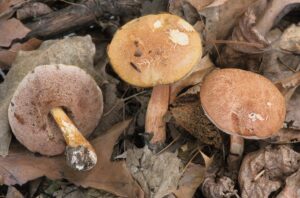
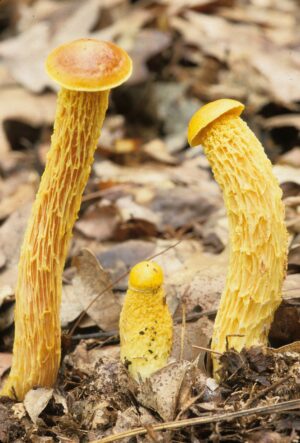

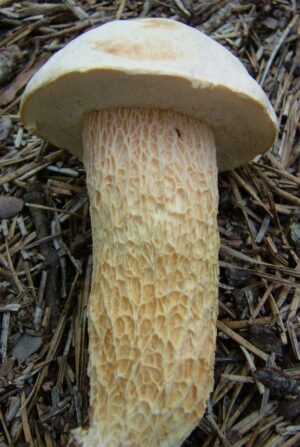
Got something to discuss?
I found a cluster of mushrooms that very closely fit the description of Tylopilus plumbeoviolaceus at around 7500ft in the Santa Catalina mountains near Tucson, Arizona. Have there been sightings of this species in my area?